Diving into the Blue Paradox: How SC Johnson is Leading the Charge Against Plastic Waste
In July 2023, the Griffin Museum of Science and Industry in Chicago unveiled a powerful exhibit exploring the pervasiveness of plastic pollution and the steps we can take to address it. The immersive experience, The Blue Paradox, invites visitors to walk beneath the ocean's surface and see firsthand the depth of the plastic crisis facing our oceans and waterways.
The paradox at the heart of the exhibit is a compelling one. While plastic has revolutionized modern life with its convenience and advances, it has simultaneously created one of the planet's most pressing pollution problems. This issue impacts not just our environment but also animal and human health. It is also one of the most challenging questions confronting business leaders—how to balance the tide of consumerism with escalating environmental concerns.
Since its opening, The Blue Paradox has attracted nearly 300,000 visitors, including students, NGO partners and individuals eager to learn how plastic pollution impacts this vital natural resource and discover the meaningful actions needed to stop plastic waste from becoming pollution. At the exhibit's end, a pledge wall invites visitors to enter their names and commitment to making a difference. So far, over 200,000 pledges have been made.
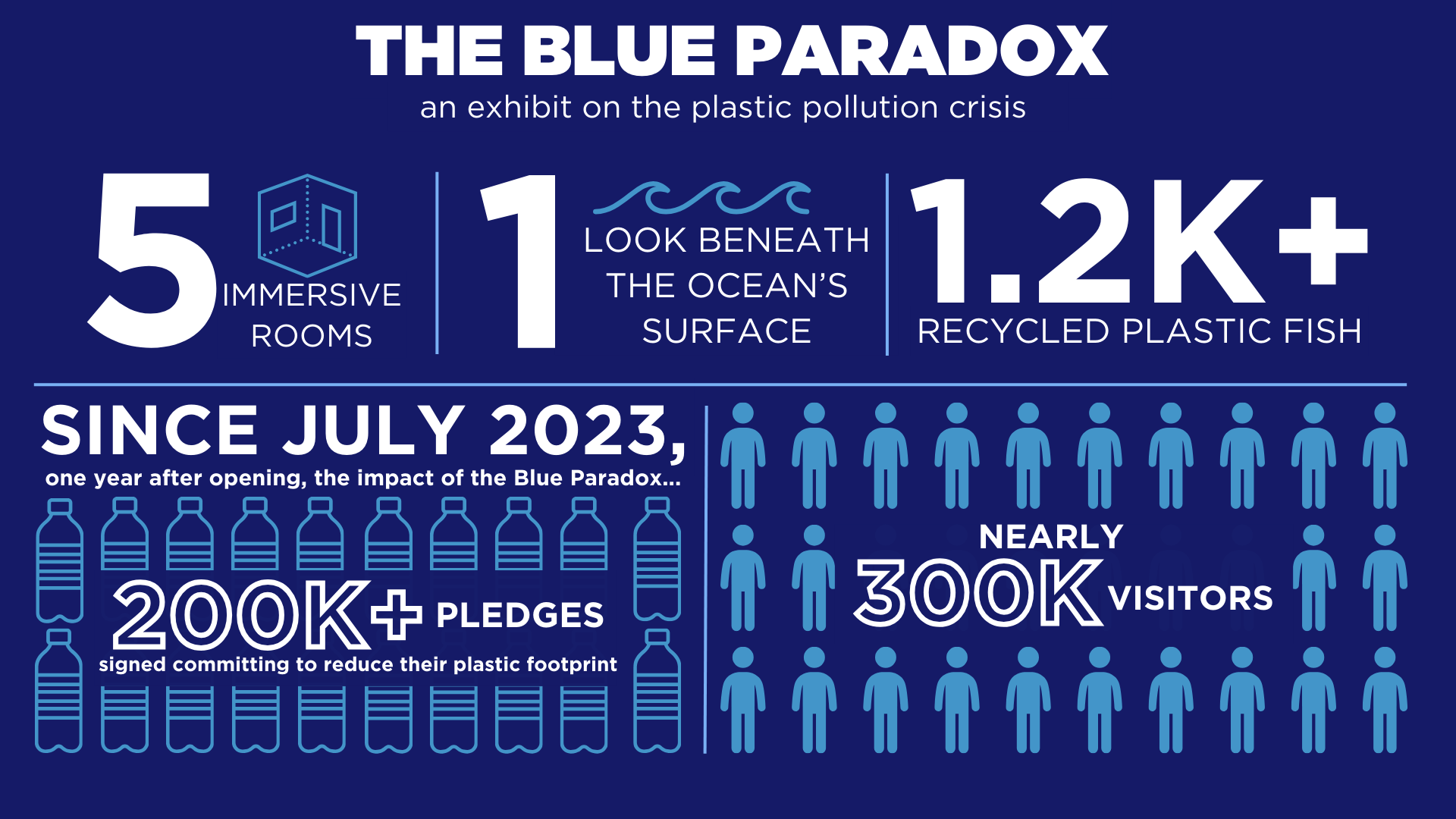
The Blue Paradox exhibit's impact one year after opening.
That's important because addressing this crisis will require complex solutions and collective action. Everyone – business, government, consumers, and recycling municipalities – has a role in driving real change. From implementing federal guidelines, participating in local clean-up efforts or making individual choices to reduce plastic consumption.
Here are some ways SC Johnson and The Blue Paradox are making a difference:
EarthEcho International- Marine Plastics Ambassadors Program, U.S. and Canada
In early 2024, EarthEcho International partnered with SC Johnson to launch a youth ambassador program to tackle plastic pollution in the Great Lakes. EarthEcho empowers young people with the knowledge and tools to protect and restore the planet. The Marine Plastics Ambassadors program brings together 25 passionate young advocates from Canada and the United States to create and lead campaigns and projects in their communities to reduce plastic pollution.
To start things off, the ambassadors visited The Blue Paradox exhibit at the Griffin Museum of Science and Industry in Chicago.
Over the past few months, these ambassadors have had some unique opportunities to make a difference:
- As countries gear up for the fifth session of the United Nations Intergovernmental Negotiating Committee (INC-5), aiming to negotiate a global plastics treaty, several ambassadors met with members of the U.S. congressional and negotiating delegations, both virtually and in person. They emphasized the need for an international treaty on plastic pollution and shared youth priorities for an effective treaty.
- Ambassadors participated in virtual conversations with 18 guest speakers from NGOs, research labs, and businesses leading the fight against plastic pollution in the Great Lakes region and beyond. These sessions helped them develop skills to support their project ideas and create funding proposals.
- Several ambassadors launched a digital awareness campaign to inspire action for Plastic Free July. This campaign saw strong engagement across EarthEcho's social media channels. Check out some of the videos on Instagram!
- At a Youth Ambassador Retreat in Seattle, ambassadors engaged with experts and advocates working in the Pacific Northwest. They shared their marine plastics knowledge, including experiences at The Blue Paradox exhibit, and collaborated on completing their project proposals (see photos below).
By the end of July, ambassadors submitted their proposals for funding support. These proposals covered a range of projects focused on inspiring behavior change, policy advocacy, and entrepreneurial solutions. Now, ambassadors are working to implement the approved projects in their local communities.
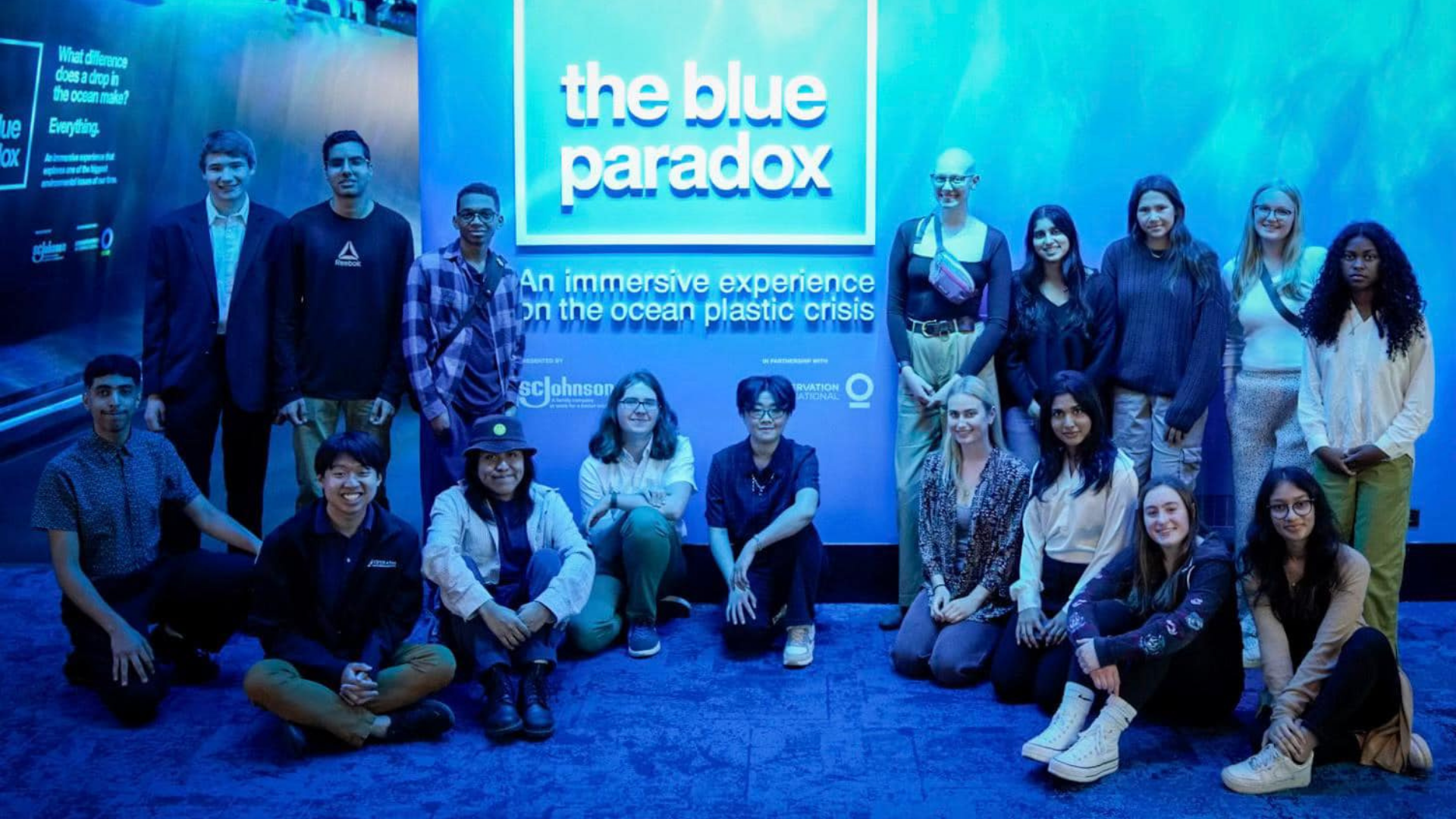
SC Johnson Chairman and CEO Fisk Johnson testifies to the Senate Committee on Environment and Public Works
SC Johnson's Chairman and CEO, Fisk Johnson, is well-known in Washington, D.C., especially for his passion for addressing plastic waste. For years, he has been urging lawmakers to pass legislation that would enhance the U.S.'s ability to recycle and reuse plastic, particularly among businesses.
In March 2024, he testified before the Senate Committee on Environment and Public Works, advocating for stronger and more uniform regulations on plastic and extended producer responsibility (EPR). He emphasized that a government regulatory framework is the only practical way to get every stakeholder in the plastic ecosystem working together effectively and on a large scale. Johnson argued that all significant companies in the ecosystem need to be part of this effort to drive the right economics and change.
Johnson highlighted five reasons why EPR is necessary:
- Americans want stronger plastic regulation.
- Without federal regulation, a complex web of state regulations is emerging, driving up costs and causing dysfunction.
- Regulation is needed to get everyone in the plastic ecosystem working effectively together and at scale.
- Accumulating landfill waste is unsustainable.
- The environmental impact of virgin plastic is greater than that of recycled plastic.
He also identified two primary reasons why stronger EPR regulation is crucial:
- It's important to get ahead of emerging state regulations before they overlap too much, driving complexity, significant costs, and dysfunction.
- The sooner regulation is enacted and clear goals are set, the more time there is to achieve those goals. This allows for a smoother transition towards sustainable plastic management, minimizing disruptions to businesses, the economy, and consumers. Time allows for product innovation in recyclability, recycled content, and reuse/refill. It also enables the development of alternatives to plastic where practical, improvements in recycling technologies, and consumer education programs to drive behavior change. Setting clear goals for the industry sooner rather than later is crucial, as waiting until the situation becomes a crisis and expecting significant progress quickly will only lead to major disruptions.
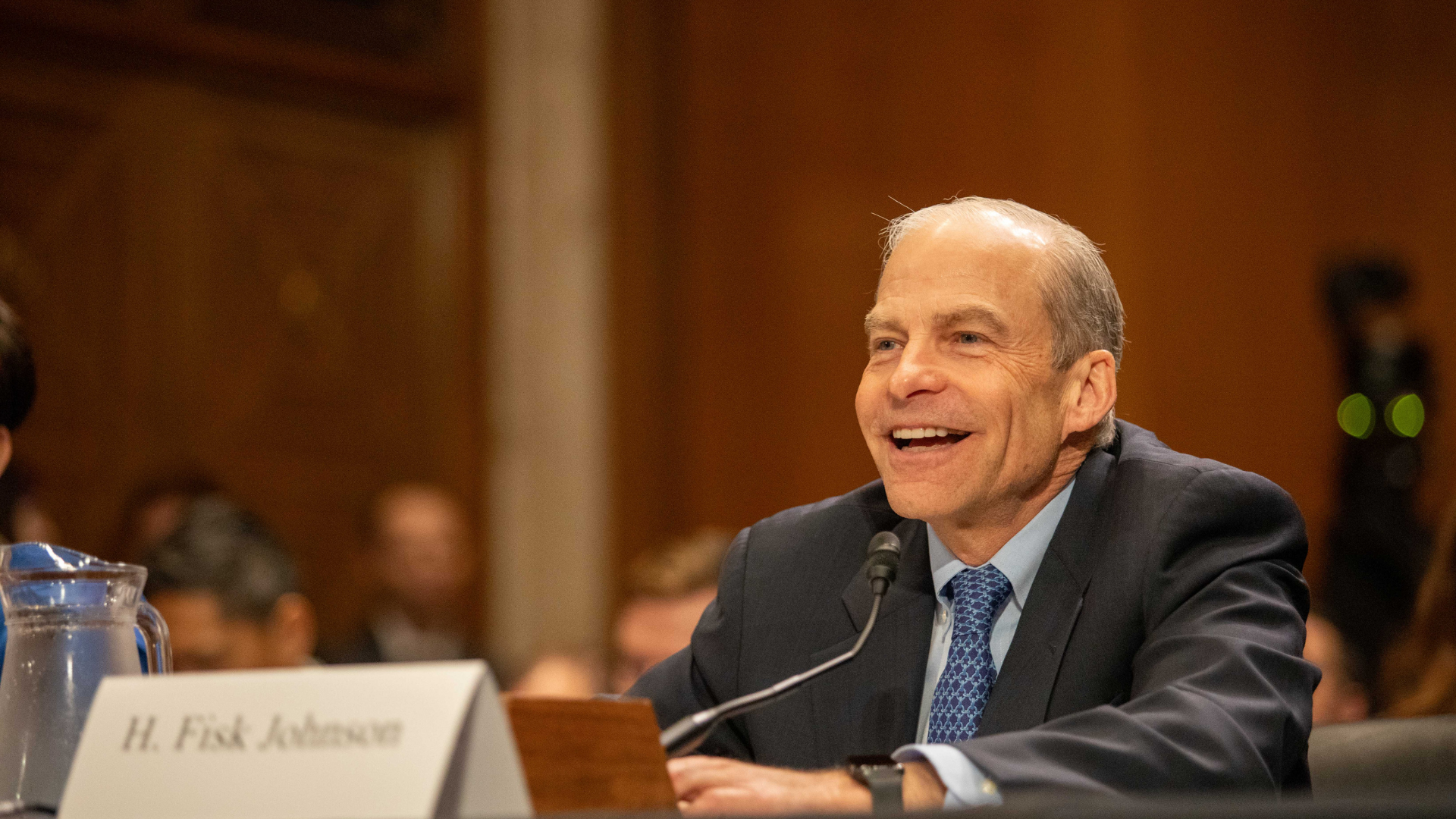
SC
Johnson has a long history of supporting ocean community engagements and
educational initiatives worldwide. Some 2024 highlights include:
· In Indonesia, SC Johnson teamed up with Plastic Bank to clean up Mertasari Beach in Bali. Approximately 80 members of the SC Johnson Indonesia team participated, collecting 220 kilograms of waste. Since 2018, SC Johnson and Plastic Bank have collaborated to reduce ocean-bound plastics and poverty by providing additional income to people in vulnerable communities. Their partnership has prevented the equivalent of 4 billion plastic bottles from polluting the ocean. The program has also provided more than 19,000 people with additional economic opportunities.
·
In
Poland, SC Johnson has created an interactive "Pure Ocean" Ecozone
Room as a part of the Young Inventors Club at the Gorzow Technological Center.
This space is designed to help children learn about protecting our oceans and
the importance of sustainability. The room features interactive elements on the
walls that explain how to reduce, reuse, and recycle. Educational displays
provide information about different types of plastic products, their recycling
processes, and what can be made from recycled materials. Within just a few
months of opening, the room hosted over 1600 children, fostering a new
generation of environmentally conscious individuals.
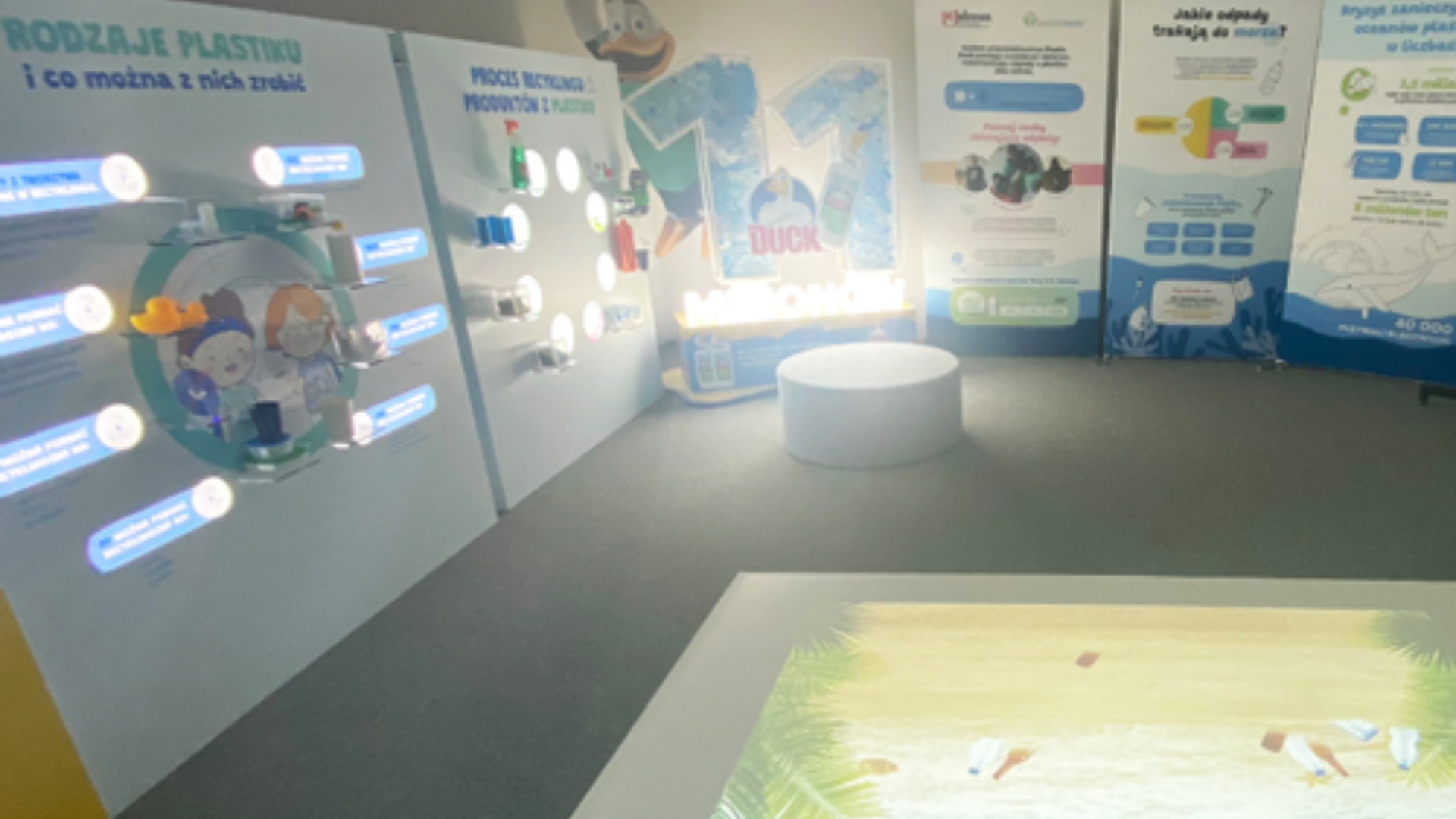
- In Taiwan, SC Johnson supported a Marine and Coastal Protection Project with Reef Check Taiwan that included 26 reef checks around coastal areas throughout the country. They trained 60 eco-divers to monitor and protect reef health and implemented educational programs that raised more than 300 individuals' awareness about marine waste. Data collected from these activities is shared with the Coastal Development Agency to help implement resource recycling policies.
- In Malaysia, SC Johnson has established coral reef rehabilitation programs, waste classification systems, and plastic recycling infrastructure on two islands. These initiatives aim to reduce ocean pollution, improve reef resilience, and generate income for local communities. It prevents over 10,000 kilograms of waste from ending up in the ocean annually, which is sent for recycling. The SC Johnson Malaysia team joined Reef Check Malaysia to conduct microplastics studies on Tioman Island to understand the scale and impact of microplastics along coastlines and have volunteered to help expand coral reefs through active rehabilitation programs.

- SC Johnson's support of the Oceanic Society's Critter Scholars Program has allowed 175 Bay Area students to experience the ocean for the first time. Through boat trips and educational programming, students learned about ocean ecology and supported conservation efforts. They also learned to document sightings using scientific standards, and collected and analyzed plankton and microplastic samples from the Bay, contributing to pollution research efforts. For many of these students, this program offered a transformative first-time experience of the ocean.
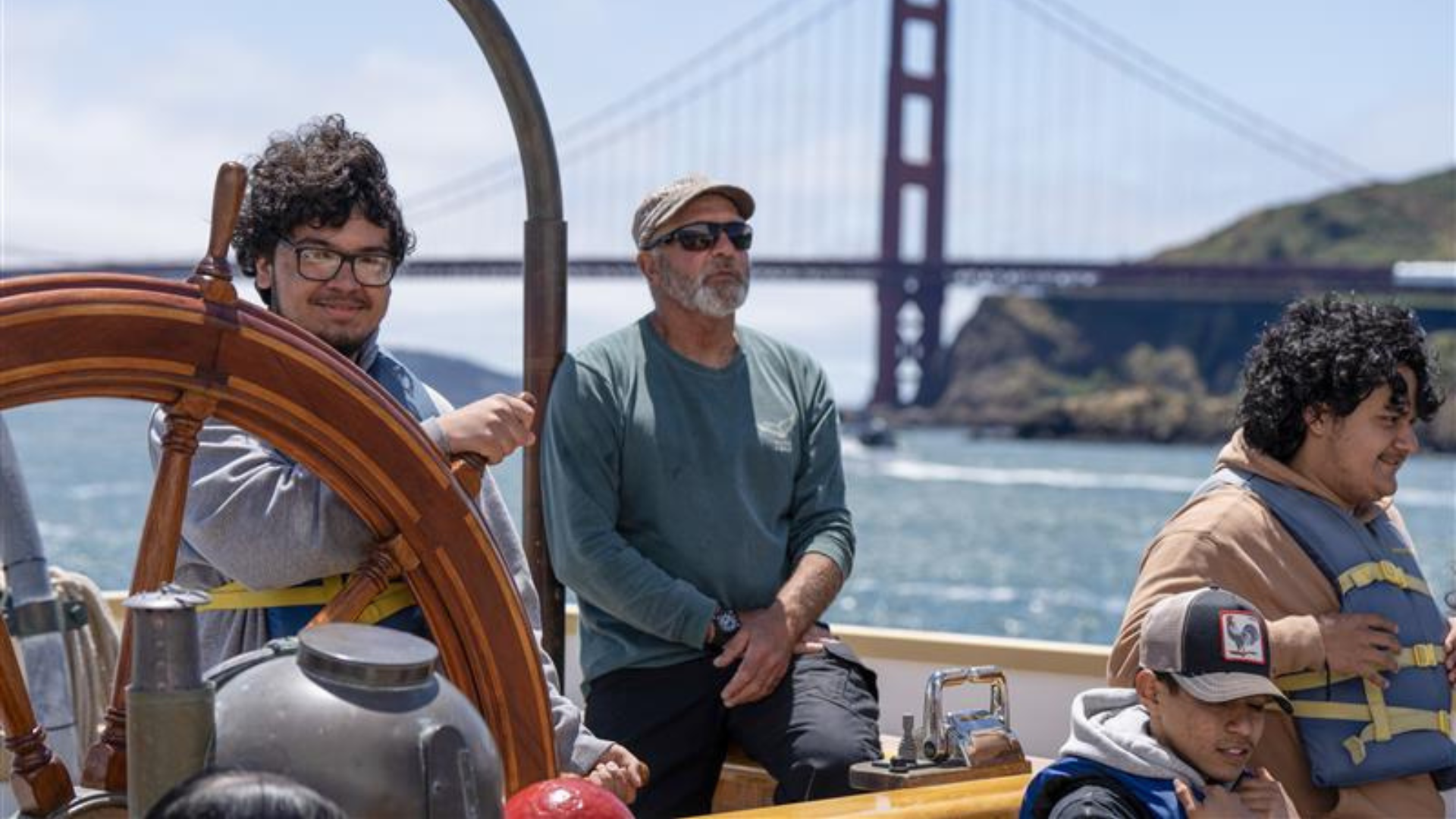
Oceanic Society's Critter Program participants on an educational boat trip.